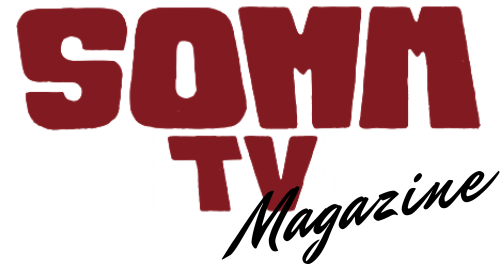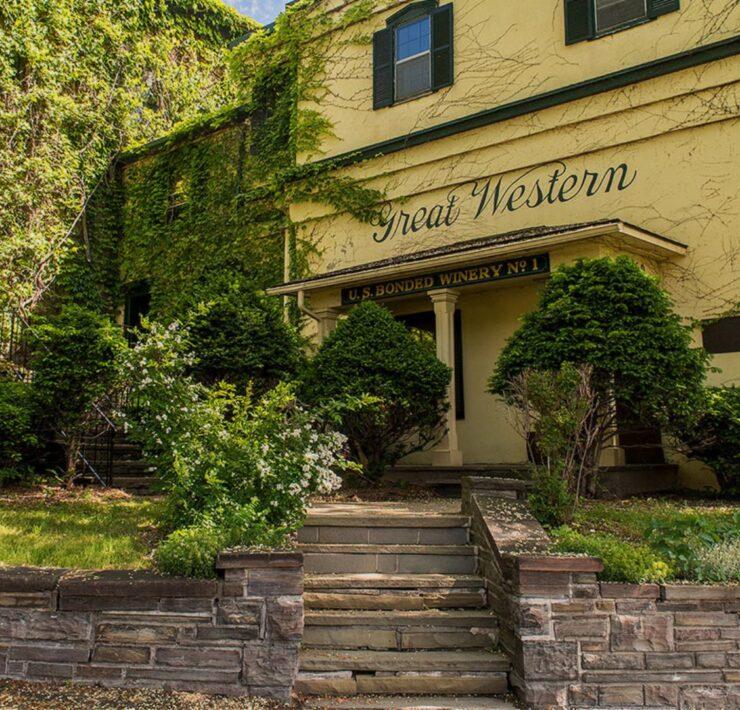Rosanna Lugo didn’t consider herself a wine drinker until she was nearing retirement. After close to 34 years working for the State of Washington and nearing her 55th birthday, she had her sights set on June of 2018. She was also enjoying volunteering on weekends at Walla Walla’s Pepper Bridge Winery. That is until she was approached by managing partner Norm McKibben, who said he needed her at the vineyard.
“I said, ‘What vineyard?’ I didn’t know anything about Seven Hills,” Lugo tells SOMM TV. Confident she would learn on the job, McKibben connected Lugo with Sadie Drury, operations manager, who had “three or four plates” in the air. With no job description to speak of, she was hired as North Slope Management’s HR compliance specialist in August of 2018. “And it’s been awesome,” she says.
Coming up on four years since that hectic start, Lugo has learned a good deal about winemaking, most of all that it depends on the health and safety of its people. She has proven that communication is key — particularly when translating between the English-speaking management and Spanish-speaking seasonal full-time crew members. Lugo is the first and only bilingual employee in the role. She is a rarity. “This vineyard has gained a reputation for respecting and caring for their employees,” she says. The result? Amidst a labor shortage, North Slope Management is adding and holding onto crew members every year. “It’s a very good reputation to have,” she says.
Along with keeping crews safe and happy, Lugo takes the role beyond the vineyard. She describes the crew as family, extending her efforts “outside-of-the-box”, such as helping employees navigate health clinic visits and medical bills. “These folks are the backbone of getting [grapes] to the production facilities, to get to the bottle, to get to the glass,” she says. She connects with them on a personal level, too: Born and raised in Walla Walla, she grew up in a migrant family, traveling throughout Washington and Oregon in the 1950s. In fact, as a young child, she lived across the road from the Lowden School, her early grade school, which is now L’Ecole No 41 tasting room. At that time, Lugo says, “You could count the Latino families on one hand.”
She has seen a lot of change over the last 50 years, seeing acres of asparagus and onions change to grapes, watching Walla Walla evolve “from a heavy ag-production facility town” to one dotted with wine-tasting venues.Now, she hopes other vineyards are seeing the work North Slope Management is doing. “I hope this starts catching on,” she says. “I’d be more than happy to go and help to get them started.”
Here, Lugo shares her unique perspective on Washington wine, her day-to-day efforts at the vineyard, and how human resources compliance can be dry as a heat wave or full of laughter, learning, and growth.
How did you become acquainted with Norm [McKibben] and North Slope Management?
On the weekends, I started working for Pepper Bridge Winery as a volunteer. I would go in and wash the glasses, pick up [shifts] when they were having events, and finally, Jennifer, one of the managers there, came to me and said, “How would you like to continue working for us?” But now, getting paid and more hours. And that’s how I met Norm. It’s been over five years.
How did your role develop?
He knew that I was going to be retiring, or soon eligible for retirement, in 2018. I was going to complete close to 34 years [working for the state] but also turning 55. He said, “I really need to have you work up at the vineyard.” I said, “What vineyard?” I didn’t know anything about Seven Hills. I could tell the story, point to it, and that’s all I knew. He connected me with Sadie [Drury, operations manager], and at that point in time, they were getting ready for harvest. She didn’t believe it would be good timing for me because I wasn’t going to have her attention to get me trained. She was doing a lot of things all on her own. And Norm said, “Just get her started. She’ll pick up everything you need her to pick up, and then you [can] take it from there.”
I started on August 13 [2018]. And it’s been awesome. I’ve been learning as I go. There’s been a couple of hiccups here and there, but it’s been so much fun. I love it. And I enjoy working with the crews. I’m out there with the ladies crew from about noon on, hanging there, making sure that they don’t need anything, making sure they have enough water, they’re wearing their [safety] glasses, their gloves, making sure there’s enough toilet paper. [Laughs]
Tell me more about the crews.
We have a total of about 30 crew members. We have a men’s crew and a ladies’ crew. Right now, what they’re doing is shoot thinning. So we’ve got over 300 acres of grapes to work, and right now, they are shoot thinning. What’s important is making sure that with this weather change that everybody’s okay, that they’re hydrated, because one thing we forget to do is drink water. So you know, keeping them hydrated and ensuring they don’t need extra gloves. You know, make sure that they have their pruners with them. Just talking to them and conversing with them throughout the whole day. How’s their day? What did they do on the weekend? It’s just like being with family; you’re just going out there and celebrating every single day with them.
So is it the same people season after season — you get to know these people?
This year, we’ve had quite a number of new employees, but previous to that, it was the same crew every year. I mean, we have one gentleman here — well, actually, several that have worked for this company for over 25 years.
Something must be going right, then!
Yeah, definitely. They love working outdoors. The number one reason why they’re still here is because they live so close, five to maybe eight minutes away, year-round. They’re seasonal full-time.
Could you explain the difference between a seasonal full-time and a seasonal farm worker? What are the different ways that vineyards or vineyard companies do this?
From our perspective: Crews usually start between January and February, depending on Mother Nature and what she does to us during the winter. There’s enough work for them to run from January/February to the first part of November, which is when harvest will end. So [they] work 40-45 hours a week, between those 10-11 months.
They know every year that it’s going to end at that time, so they know it’s seasonal, but they also know that they’re working full time throughout those months. So that’s seasonal full-time. With contractors, [the workers] jump from place to place to place just to do the one job and then move on. Here, Sadie is a contractor, but she’s got all the work here because we have so many vineyards.
When you started, how did your role turn into human resources compliance? That’s working with the state, right?
Yeah, right now, I’m working on an emergency medical response plan. We have to update our heat illness plan because, obviously, when you’re working outside and the weather changes, and if there’s a heat temperature change, we need to make sure that we’ve got things in place. That includes shade, ensuring that the supervisors know there’s got to be more than the two breaks that are given to have the folks rest. If after a certain temperature — and Sadie’s constantly looking at that — it gets too warm, we send them home. We don’t want anybody fainting here or getting heatstroke. So it’s that kind of compliance that I need to make sure we are up to date on.
Also, we need to make sure all of the Bureau of Labor and Industry required posters are up to date and that on our boards, all of the forms, any fliers or plans, are in both English and Spanish. So, I do the translat
Is that rare, making things bilingual? Is that something that you implemented when you started?
It actually was one of the goals that Norm wanted to have occur, especially with Sadie leading the charge, [saying] “I can understand them, but it’s really difficult to make sure that they are understanding me when I’m trying to let them know about any potential risks, any potential changes that are going to affect their work schedule.” And so, she was pushing for someone to be up here to help her with that piece. And that’s where Norm said, “Hey, I’ve got the right person for you.” Sadie was holding three or four plates all at one time, and she’s like, “I don’t have time for her. I don’t have time to train somebody. I need her, but I don’t have time for it.” [And Norm said], “Just throw her in there. She’ll be fine.”
And you were.
I was! It’s a perfect fit. Coming from the state government, all you know is compliance; all you know is policies.
That’s a huge part of the learning curve that you already had under your belt.
Correct. And with the crews, they’re not used to having somebody constantly checking on them from that side. In other words, they were like, “What do you mean we can’t wear loppers around our neck?” It’s those kinds of minor details. I come along saying, “Okay, if you fall and those big scissors are hanging around your neck, you’re gonna hurt yourself.” Those little details they’re so used to not even thinking about become second nature to them. And here I come behind saying, “No, can’t do that. You guys gotta wear your glasses because there are steel poles [at waist height]; as you bend over, you don’t see it. You could poke your eye out.”
Are you the only bilingual employee on staff?
For this role, yes. We have an irrigator who is also bilingual but doesn’t get involved with the crews.
Where else does being bilingual come into play? I saw that you have monthly safety meetings.
We do. Every month we have a safety meeting. Next week we will have the safety meeting on heat, and we’ll talk about the difference between heat stress and heat stroke and the symptoms we need to look for. We talk about who’s first aid certified and that the one thing that Sadie made sure occurred was having specific roles be First Aid CPR certified because we all can’t be at the same place at the same time.
So everyone knows what to do in these scenarios.
Exactly. And if nothing else, everybody knows how to call and dial 911. That’s one of the things that we really emphasize: Dial 911 if you think something is really wrong with this person. We’ll figure out the rest once they get here. We’ll come up there and make sure that we are getting things in place, but between now and then, and by the time we get to where you guys are at, dial 911.
So the other thing I do that has been very, very helpful with the crews is if they get a bill and don’t understand it, or if they have to go to the clinic because they’re not feeling well, I can go with them. I can help them find the resources to cover the bill if they don’t have enough money to cover it. I’m always working with the hospitals and seeing what resources are there. I work with the SOS clinic that serves our vineyard workers and doesn’t charge them the full cost. I also help with their unemployment, so if they need to claim for unemployment come wintertime, I help them file their claims. So as far as the job, it’s just not within this company. I also do outside-of-the-box stuff to help, ensuring they can sustain their families and get connected to those resources.
That’s really above and beyond … It’s their lives, not just their work.
Right. We want them back next year. So how do we help you in your personal life without me invading it? You know, where we draw the line is respecting whatever they want. And making sure they come back next year.
So you said that there are a lot of new employees this year. Where is that growth coming from?
You know, that’s one of the things I was able to tell the owners last year during my evaluation. This vineyard has gained a reputation for respecting and caring for its employees. I always joke that people have found my number on the bathroom wall because I get calls, even in the evenings. I tell everybody I don’t care what time of day or night it is, you guys call me if you need anything, but I’m getting calls from people that had never worked here before and said, “We understand you guys are hiring. We’d like to come out and work for you.”
So, you know, is there a labor shortage? Yes. Have we been lucky enough to stay with the crew, with a number of folks we have every year, and then add employees? Yes. Do we weed through some? Of course we do, just like any other employer.
That’s a huge accomplishment.
It’s a very good reputation to have.
Absolutely. Do you think other vineyards will start seeing this and improving their own employee management and relationships with their workers?
I hope so. I hope this starts catching on. Sadie’s gotten a couple of calls asking about my role, what she expects out of this role, and how they can build one and develop a role for their particular venue. Sadie’s even offered, and I’ve let Sadie know, that if they find somebody and want to know the bumps and bruises we went through, I’d be more than happy to help get them started. Even share some of the plans we’ve developed, some of the policies we’ve developed together, and have them use it as a template if you will.
The best kind of leader is one that’s willing to share and lead others.
There’s no sense in hiding everything, keeping everything close to your chest. Who’s that helping?
Were you always a wine drinker? Or as the area changed, were you always interested in the wineries?
No. I saw an opportunity. I didn’t start tasting wine until I started working at Pepper Bridge.
Once I got into the winery and started having to taste and learn — learn each of the different varietals and where they came from and how to explain that to our guests — that’s what really started intriguing me. And then, when I started working out here [at Seven Hills], I was like, “Oh, my God. This is huge. These folks are the backbone of getting [grapes] to the production facilities to get it to the bottle and the glass.”
As a matter of fact, one of the things that the crew is always asking me is, ‘How does it taste? How does the grape taste in wine?'” Sadie and I put our little brains together, and her light bulb went on. We have decided to start bringing the tasting room to the vineyard. [We’re] giving the employees the opportunity to taste the wine — the wines from the grapes that they have worked all year long — and teaching them how to swirl, how to taste. The most basic, simplest things to folks that have the experience and expertise. How do we bring that to us [at the vineyard] and say, “This is what you should taste and why, and this is where it’s coming from, which blocks you guys worked.”
I can imagine that would make the work more meaningful for them as well.
Oh, yeah. A lot of us don’t have the opportunity, or they don’t have the opportunity because of their work schedule, to go to a winery and have the experience of tasting — as well as, they wouldn’t. The intimidation of walking in and not knowing what to say, ask for, or expect… We didn’t want them to feel that way. So we said, bring it out here, and they had the best time.
They were asking questions about it. How long does it last in the barrel? What happens when our bins arrive at the production facility? Why are there stems in this one and not in the others? They were all intrigued. I didn’t expect them to be asking questions, but they asked questions. And then they said well, we don’t like this one. We like this one because it’s older and has a softer taste. And these are people that have never had wine before.
They’re only the ones making it possible! It sounds like you have a lot of great ideas and these types of things — once you say it, it’s like, well, yeah, everybody should do that. Right?
Right. It’s finding the time. I think we get so we put our heads down and work that we forget about the few minutes we could spend with one another to talk about safety. The few minutes we could spend to get there to talk about their concerns to listen, not have us talk, but have them tell us. What are your concerns? What do you guys want to know more about? And what is it that’s not working out here that we need to help you improve, save time and money, and be more efficient? What’s missing?
What is missing? What are some of the concerns that they come to you with?
So one of the things that they’ve asked us — and Sadie made the change this year — was at the very beginning, when pruning starts, don’t split the groups up, have them all work together to get to know one another. Have both supervisors there so that you have consistency and communication. And that’s been the number one thing: constant communication. Keep those lines open. Tell us what’s going on when it’s going on, not after the fact.
The other thing that the supervisors have asked us to change is if during the day they do shoot thinning, so they shoot thin on top, but then they also clean the trunks. And one of the things they came to us was the people are getting tired when all you have us doing is cleaning trunks all day. Let us clean trucks in the morning when it’s coolest. And then shoot thin in the afternoon to give our backs a rest.
And that’s doable.
That’s very doable. We did planting this year as well. So I was out there helping them — digging holes, handing out the plants — and they were like, “do you even know how to dig a hole?” They would be funny. I was like, “no, how do you use the shovel?” So it’s that kind of trust I’ve gained that allows them to have some fun with me.
They trust you. You trust each other.
I had to earn their trust. Because they had to see that I would follow through on whatever they asked me. I told them, “You ask me, I’ll go ask Sadie, and I’ll bring you back the response.” Something as simple as, during the winter months, when everybody was wearing a mask during COVID, their glasses would fog up. [They asked for] glasses with fish netting, “we’ll still be able to have the protection but not have the fogginess so we can continue to work.” So I found some glasses, actually Sadie and I found glasses that look like, in Spanish, they’re called “lentes de mosca,” eyes of the flies. How simple was that? These give them air and still enough coverage where it’s protecting them against any potential injury. And they were like, “We would have never asked if you wouldn’t have been here.”
That must be really fulfilling.
Oh, very. My birthday was on Tuesday [June 7], and the ladies made me a luncheon and gave me the sweetest gifts. One would think this means nothing, but it meant so much to me. When they gave me gifts, I made fun of them — one lady gave me bobby pins with some scrunchies, and I said, “do I not comb my hair?” And then another lady gave me a beach towel, and I said, “okay, so you want me to comb my hair. And now you want me to take a shower.” So it’s those simplest gifts coming from the heart that they know I’ve appreciated every single one of them they gave.
And so it’s that kind of community building that we’ve developed and have going really well for us here.
It sounds like a great place to work.
It really is. I can talk forever about these people. It’s just an honor and a privilege to work right along with them. I’m trying to figure out what else I can do for them? That’s what I’m always looking for. We’re here nine hours a day. We need to respect one another and have fun. We see one another more than we see our families. So, let’s make sure nobody goes home upset.
So, I guess you’re not retiring anytime soon.
No. I just turned 59. God willing, I’m going to be here till I’m 99.









